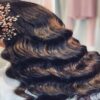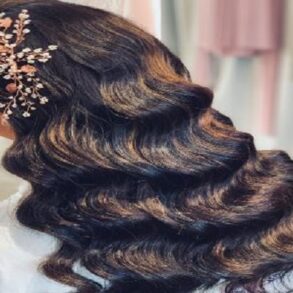It has never been “just hair” for Black Americans.
Going natural by sporting Afros, braids and locs can lead to discrimination, in spite of laws like the CROWN Act that prohibit hair bias and discrimination, barring employers and schools from penalizing people — usually Black people — because of their hair texture or hairstyles.
There’s a good reason why so many Black women, wise to workplace bias, straighten their hair before going on job interviews
Black women, in particular, have been shouldering the most harmful health consequences tied to chemical hair relaxers, according to the thousands of federal lawsuits now consolidated in federal court here in Chicago, as the Sun-Times’ Andy Grimm and WBEZ’s Natalie Y. Moore recently reported. Dozens of similar cases have been filed in Cook County and other local jurisdictions across the country. The lawsuits first began rolling in after a National Institutes of Health study in 2022 found that women who regularly used hair relaxers developed uterine cancer at more than twice the rate of women who did not.
Boston University’s Black Women’s Health Study in October unveiled its research with similar findings: Moderate to heavy use of chemical hair relaxers may be associated with higher risk of uterine cancer among postmenopausal Black women.
L’Oreal and the industry organization Personal Care Products Council insist that the relaxers many Black women have used over the years are safe. And the science so far has pointed only to a correlation — not a causal link — between hair relaxers and certain diseases and health conditions, including uterine fibroids, endometriosis and breast cancer.
The number of Black women who have filed lawsuits, and the startling findings of numerous studies, should not be ignored. And more research is needed to pin down any direct causal link between hair relaxer ingredients and cancer or other diseases.
In the meantime, the U.S. Food and Drug Administration should move forward quickly on its proposal to ban formaldehyde in hair-straightening products. The proposed rule is scheduled to be introduced by the FDA this month.
A ban is an important and needed step to protect the health of Black women and others who use hair relaxers.
California and Maryland have already passed such legislation, set to take effect in 2025. And while more and more Black women are wearing their hair natural and foregoing relaxers, a ban still make sense to protect women who continue to use the products.
“The fact that formaldehyde is still allowed in hair care products is mind-blowing to me,” as Linda Birnbaum, a former director of the National Institute of Environmental Health Sciences and the National Toxicology Program, told NPR in February.
Hair care should not result in a health scare.
The Sun-Times welcomes letters to the editor and op-eds. See our guidelines.
This post was originally published on this site be sure to check out more of their content.







